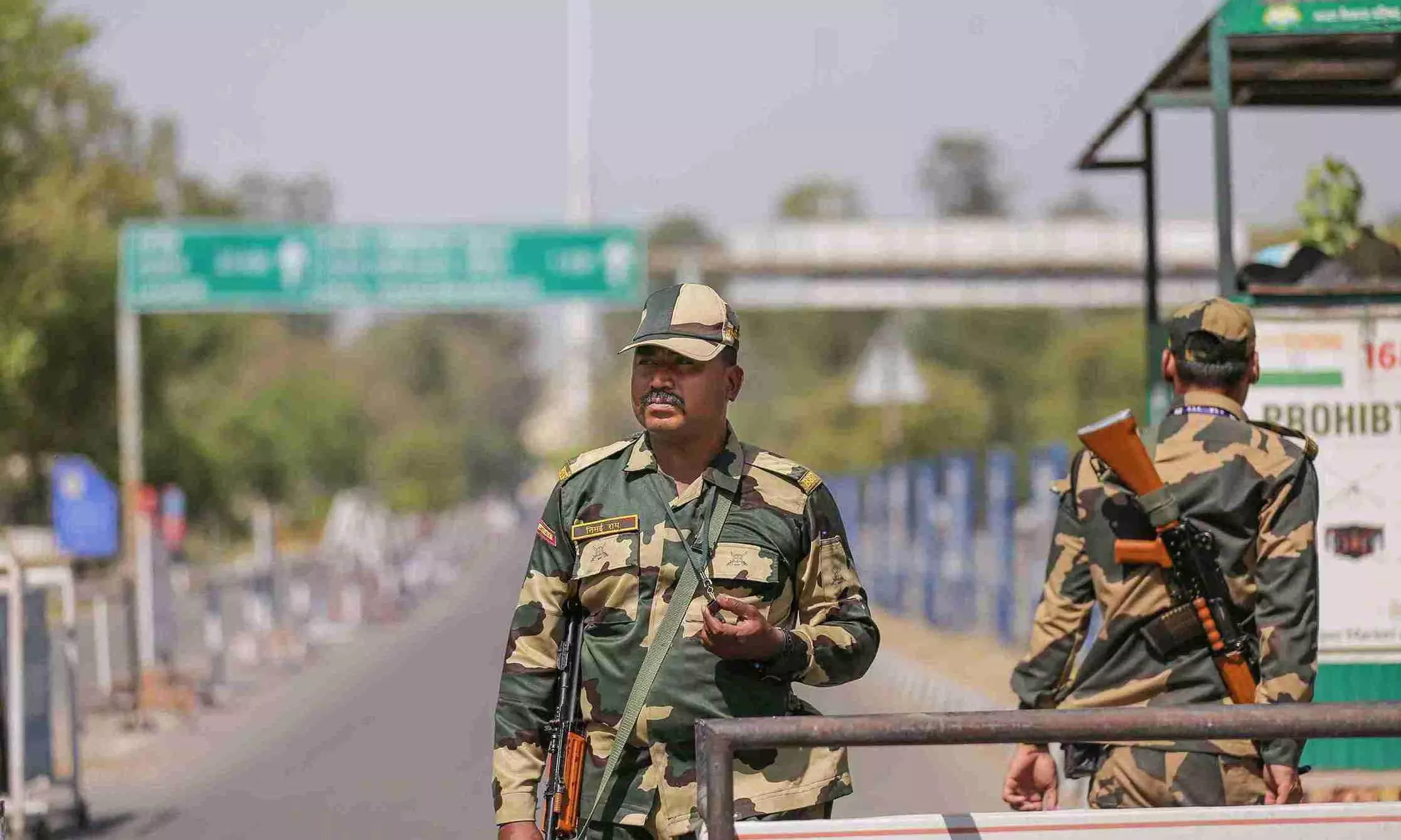
‘False flag operation’, ‘knee-jerk reaction’: Pak reaction to Pahalgam aftermath
Pakistan quickly convened a National Security Committee meeting to deliberate its response even as its market plunged amid fears of escalating tensions

The Pakistan stock market has nosedived following the series of stern diplomatic steps taken by India after the Pahalgam terror attack, including the suspension of the Indus Waters Treaty, which the neighbouring country has termed a “violation of international laws”.
Pakistan — which believes the attack could have been a “false flag operation” — quickly convened a meeting of the National Security Committee (NSC) to deliberate its response even as its main market index, the Karachi Stock Exchange (KSE-100), plunged more than 1,700 points on Thursday (April 24) amid fears of escalating tensions between the neighbours.
Also read: Pakistan stands globally isolated in its claims over Kashmir
India’s move
On Wednesday (April 23), a day after the dastardly attack that left 26 civilians dead, India suspended the Indus Waters Treaty — an unprecedented move — and announced downgrading of diplomatic ties with Pakistan, including expulsion of its military attaches.
The Cabinet Committee on Security met on Wednesday and decided that the Attari-Wagah border would be closed as well, giving those with valid documents time till May 1 to return.
The defence, military, naval and air advisers and their support staff in the Pakistani High Commission in New Delhi have been declared “Persona Non Grata”, with a week given to them to leave India. India will withdraw its own defence, navy and air advisers from the Indian High Commission in Islamabad.
Also read: LIVE | We will pursue terrorists to the end of Earth: PM Modi on Pahalgam terror attack
‘Knee-jerk reaction’, says Pakistan
An editorial in Pakistan’s leading Dawn newspaper described these steps as “a knee-jerk reaction to the tragedy” by India, and blamed the latter for “dragging” Pakistan into the “deplorable episode” at a time when “Pakistan has denied any role in the attack and [even] offered condolences for the loss of lives”.
The NSC meeting, chaired by Pakistani Prime Minister Shehbaz Sharif, has been called to “discuss in detail India’s irresponsible actions after Pahalgam false flag operation”, said the state-run Radio Pakistan. Among the issues to be reviewed is “India’s hastily taken, impulsive and impractical water measures”, said the report.
On Thursday, India also blocked access to the official X account of the Pakistan government and summoned Saad Ahmad Warraich, the top Pakistani diplomat in New Delhi.
Also read: Post Pahalgam terror attack, 'alpha male' Modi faces his sternest challenge yet
Why Pakistan is being suspected
The editorial in Dawn mentions that the Pahalgam attack “has been claimed by The Resistance Front, a hitherto unknown entity”, remaining silent about the fact that it is an offshoot of the Lashkar-e-Taiba terror group, which happens to be based in Pakistan.
More significantly, the attack came days after Pakistan Army Chief, General Asim Munir, termed Kashmir as Islamabad’s “jugular vein”, which his country “won’t forget”. He also said that Pakistan would continue to provide support to the “historic struggle” of Kashmiris.
Also read: Pahalgam terror: Time for India to act decisively against Pakistan, says strategic expert
A ‘false flag operation’?
However, Pakistan’s Defence Minister Khawaja Asif, in an interview with Hum News, termed the Pahalgam attack a “false flag operation” — something committed with the intent of pinning the blame on an innocent party while disguising the actual source of responsibility.
“There are plenty of homegrown organisations within India,” Asif argued. “We condemn terrorism in all its forms, since Pakistan has been the most affected by terrorism. We are the last country that would support terrorism after the effect it has had on us.”
Asif also told a private TV channel that India’s suspension of the Indus Waters Treaty was a “violation of international laws”. Reacting to fears of an Indian retaliatory strike, he said Pakistan “is capable of responding to any Indian aggression in a befitting manner”.
Also read: Pahalgam attack: 'Nothing to do with it', Pakistan claims; Delhi skeptical
No evidence, says Pakistan
Speaking to Geo News, Pakistan’s Deputy Prime Minister and Foreign Minister Ishaq Dar called India’s decisions “inappropriate”. “There is no evidence … expressing their anger like this is inappropriate,” he said. “These announcements seem like a knee-jerk reaction and are immature and presumptuous,” he added.
Dar claimed Pakistan had “no relation” to The Resistance Front. “The quick reaction [by India] suggests this may be a political ploy…We will appreciate any evidence they present, but their actions are presumptive, politically motivated and the whole thing is undesirable.”
Also read: Pahalgam attack: Release of Pakistani actor Fawad's 'Abir Gulaal' uncertain
Imran Khan’s PTI ‘stands with armed forces’
Irfan Siddiqui, parliamentary leader of Pakistani Prime Minister Shehbaz Sharif’s party PML-N in the senate, termed the Pahalgam attack a “well-planned conspiracy” to defame his country.
He also alleged that “India has a history of staging such incidents whenever a foreign dignitary visits the country” and that “the Pahalgam drama” was orchestrated deliberately during US Vice-President JD Vance’s visit to serve India’s “propaganda objectives against Pakistan”.
Imran Khan’s Pakistan Tehreek-e-Insaf (PTI) party, while denouncing the attack and describing terrorism as a “shared enemy of the civilised world”, stated that any attack on Pakistan would be met with a “united national response”. The statement said Imran Khan and the party “firmly stand with the armed forces and the people” against any “aggression by the Indian government against Pakistan”.

